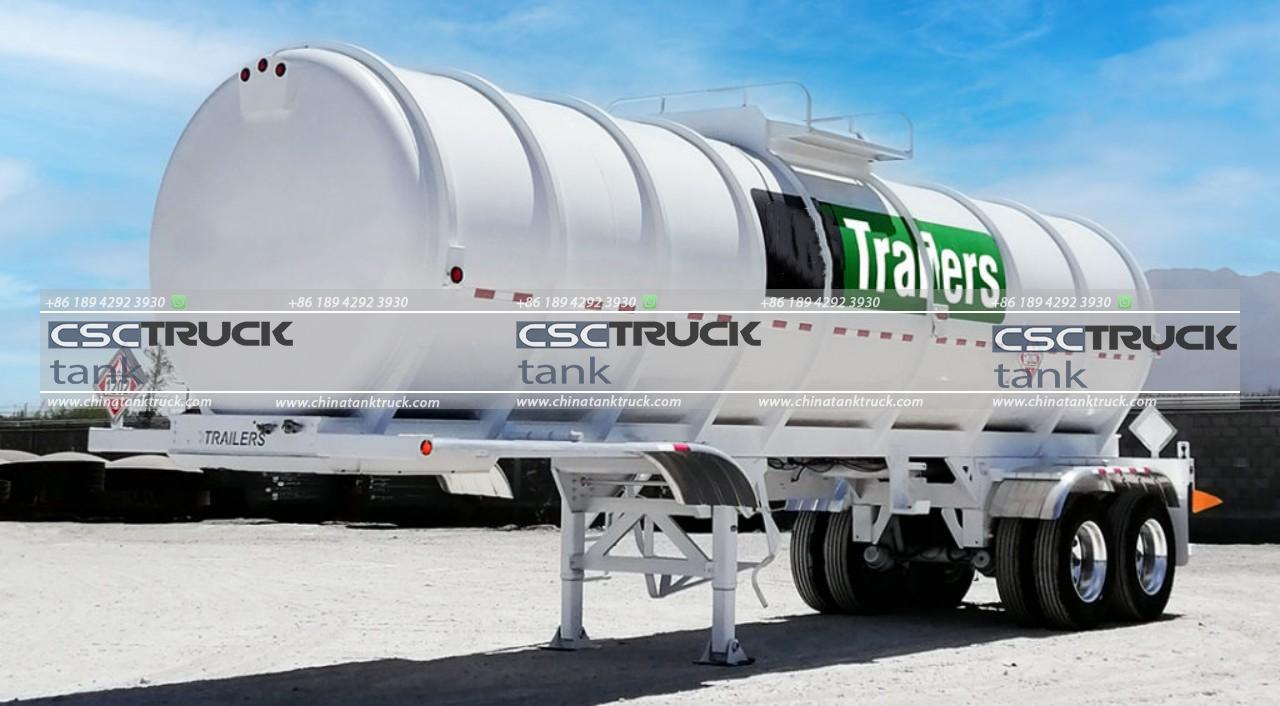When it comes to transporting various liquids and gases, tank trucks play a vital role in the transportation industry. These specialized vehicles are designed to safely carry and deliver a wide range of substances, including hazardous materials, petroleum products, chemicals, and food-grade liquids. Among the different materials used for constructing tank trucks, carbon steel stands out as a popular choice due to its exceptional properties and suitability for specific applications. In this article, we will explore what makes carbon steel tank trucks suitable for specific applications and why they are widely used in the industry.
Carbon steel is a versatile material that offers several advantages when it comes to manufacturing tank trucks. One of the primary reasons for its popularity is its strength and durability. Tank trucks are subject to demanding conditions and need to withstand the rigors of transportation, including rough roads and varying weather conditions. Carbon steel exhibits excellent tensile strength, making it highly resistant to deformation or structural failure, ensuring the safe transportation of the cargo.
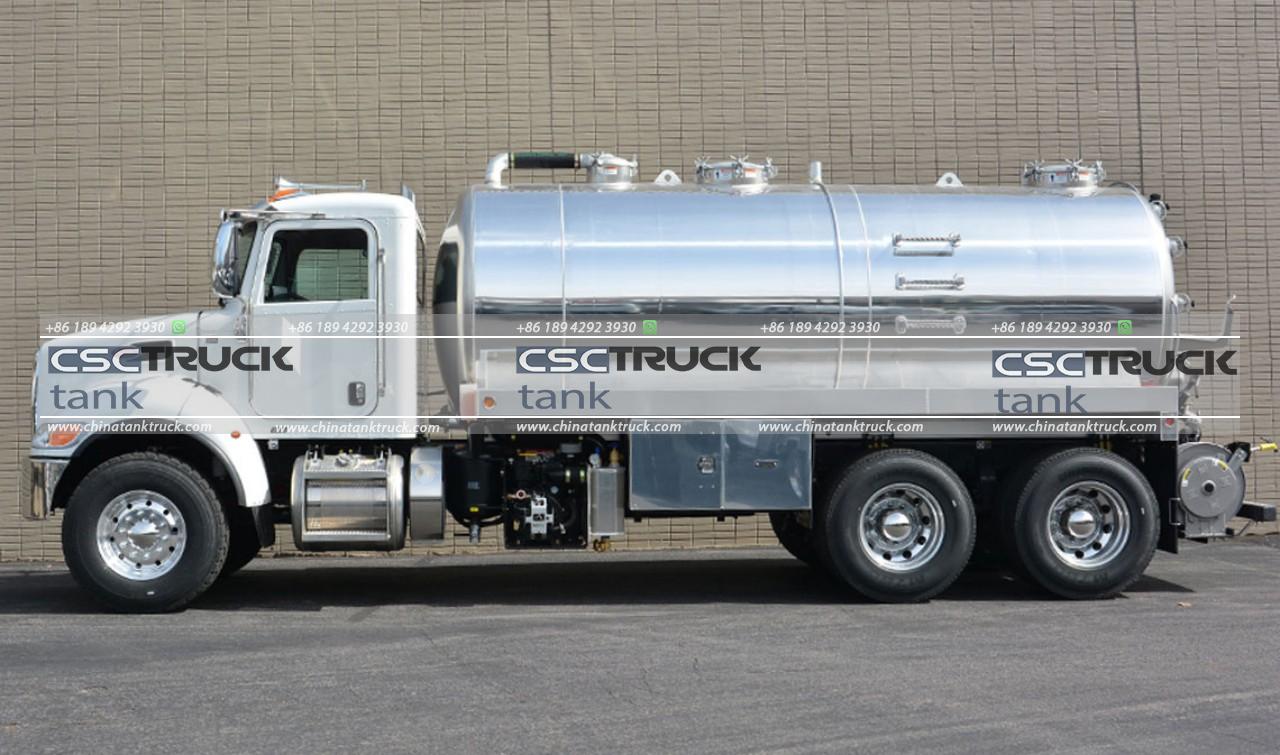
Another key advantage of carbon steel is its corrosion resistance. Tank trucks often carry liquids and gases that can be corrosive, such as acids, chemicals, or salt water. Carbon steel is known for its ability to resist corrosion, especially when combined with protective coatings. Manufacturers often apply specialized coatings or linings to the interior of carbon steel tank trucks to provide an extra layer of protection against corrosion. This ensures the integrity of the tank and prevents leaks or contamination of the transported materials.
The versatility of carbon steel is another significant factor contributing to its suitability for specific applications. Carbon steel tank trucks can be customized to meet the specific requirements of different industries. They can be designed to transport liquids or gases at various temperatures and pressures, making them suitable for a wide range of applications, from transporting petroleum products to delivering food-grade liquids.
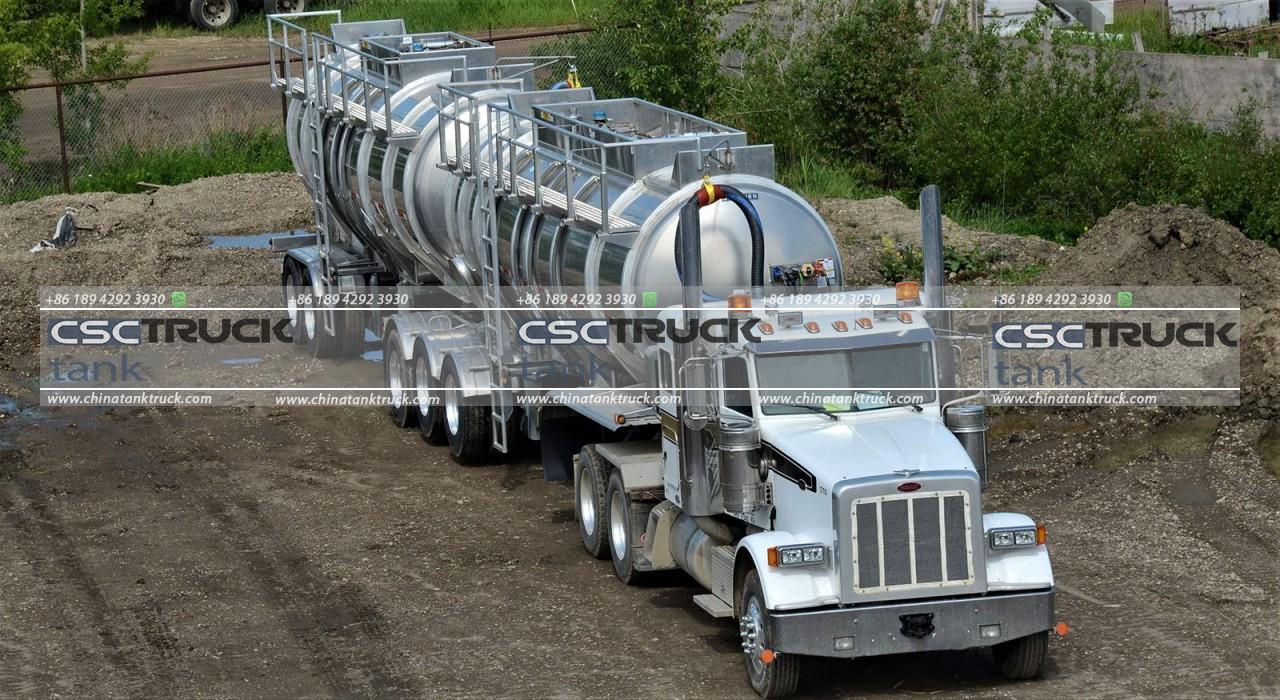
In the petroleum industry, carbon steel tank trucks are widely used for the transportation of crude oil, gasoline, diesel, and other petroleum products. These tank trucks are designed to handle the specific properties and characteristics of these substances, including their flammability and volatility. Carbon steel’s strength and resistance to high temperatures make it an ideal choice for such applications.
The chemical industry also benefits from carbon steel tank trucks. Chemicals can be corrosive, reactive, or toxic, and require special handling during transportation. Carbon steel tanks can be designed and coated to withstand the corrosive nature of chemicals and ensure the safety of both the cargo and the environment. Additionally, carbon steel tanks can be manufactured with multiple compartments, allowing for the simultaneous transportation of different chemicals without the risk of cross-contamination.
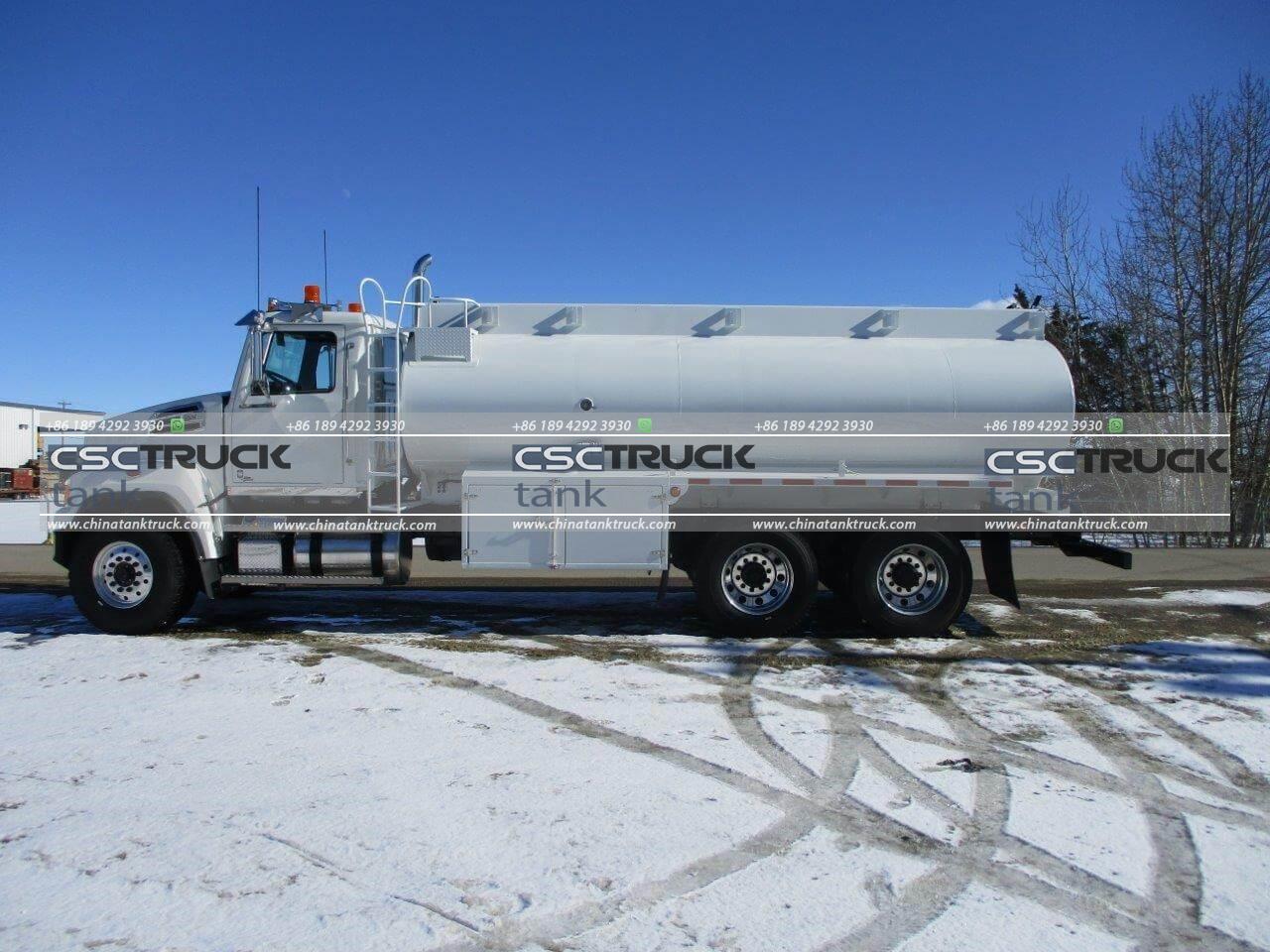
Food-grade liquids, such as milk, juices, and edible oils, often require special transportation conditions to maintain their quality and safety. Carbon steel tank trucks can be designed with sanitary features, such as smooth interior surfaces and proper cleaning mechanisms, to meet the stringent standards of the food industry. These tanks can also be insulated or equipped with temperature control systems to maintain the desired temperature of perishable food products.
Apart from the specific industry applications mentioned above, carbon steel tank trucks find utility in various other sectors. They are used in the transportation of water, including potable water for municipal supplies or non-potable water for industrial purposes. Additionally, carbon steel tanks are utilized in the agricultural sector for transporting fertilizers, pesticides, and other agricultural chemicals.
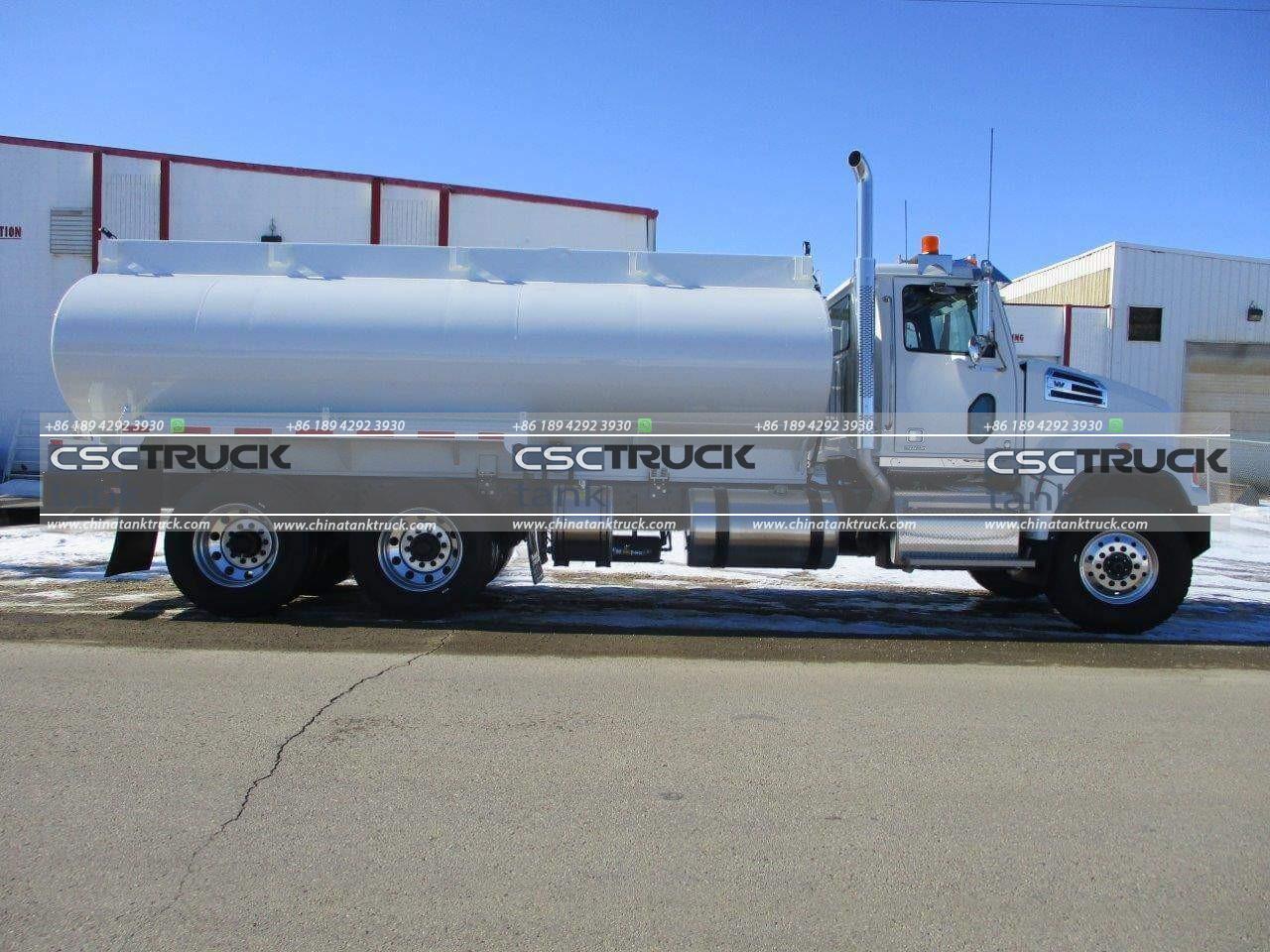
In conclusion, carbon steel tank trucks offer several advantages that make them suitable for specific applications. Their strength, durability, and corrosion resistance make them ideal for transporting a wide range of substances, including hazardous materials, petroleum products, chemicals, and food-grade liquids. Carbon steel tanks can be customized to meet the specific requirements of different industries, ensuring the safe and efficient transportation of cargo. While other materials may be suitable for certain applications, carbon steel remains a popular choice due to its exceptional properties and versatility in the transportation industry.
Furthermore, carbon steel tank trucks offer cost-effectiveness. Carbon steel is relatively affordable compared to some other materials used for tank construction, such as stainless steel. This makes carbon steel tanks a cost-effective solution for companies and industries that require a large fleet of tank trucks for their operations. The lower cost of carbon steel tanks allows businesses to allocate their resources more efficiently and invest in other areas of their operations.
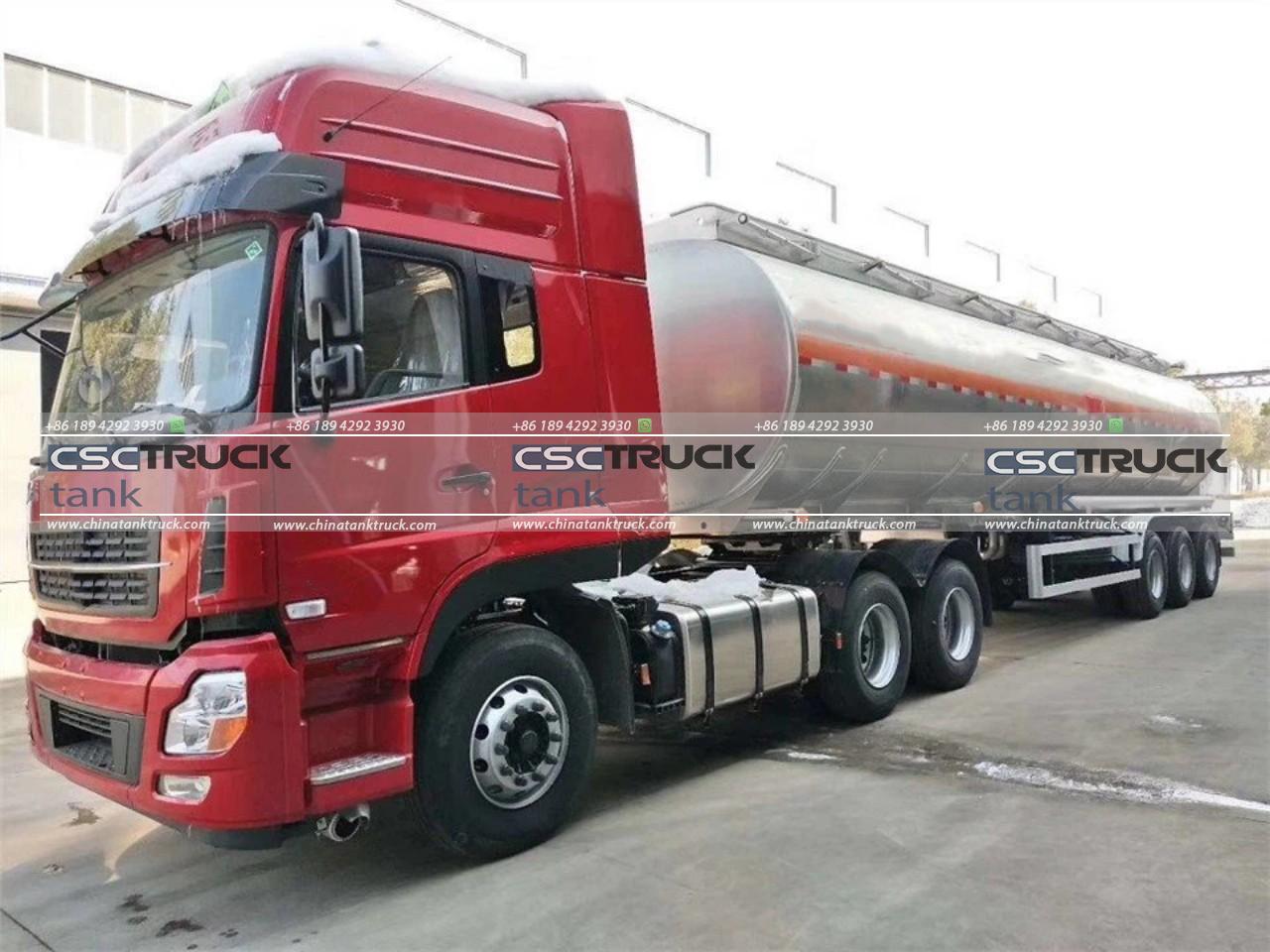
Maintenance and repair of carbon steel tank trucks are also relatively straightforward. The material is widely available, and repair or replacement of damaged sections of the tank can be done without excessive costs or complications. Additionally, carbon steel tanks can be easily cleaned and maintained, ensuring the longevity and reliability of the equipment.
It’s important to note that while carbon steel offers numerous benefits, it also has some limitations. One of the primary considerations is the potential for corrosion. Despite its inherent corrosion resistance, carbon steel can still be susceptible to corrosion if not properly maintained or if the protective coatings are damaged. Regular inspections, maintenance, and appropriate coating systems are necessary to prevent corrosion and ensure the longevity of carbon steel tank trucks.
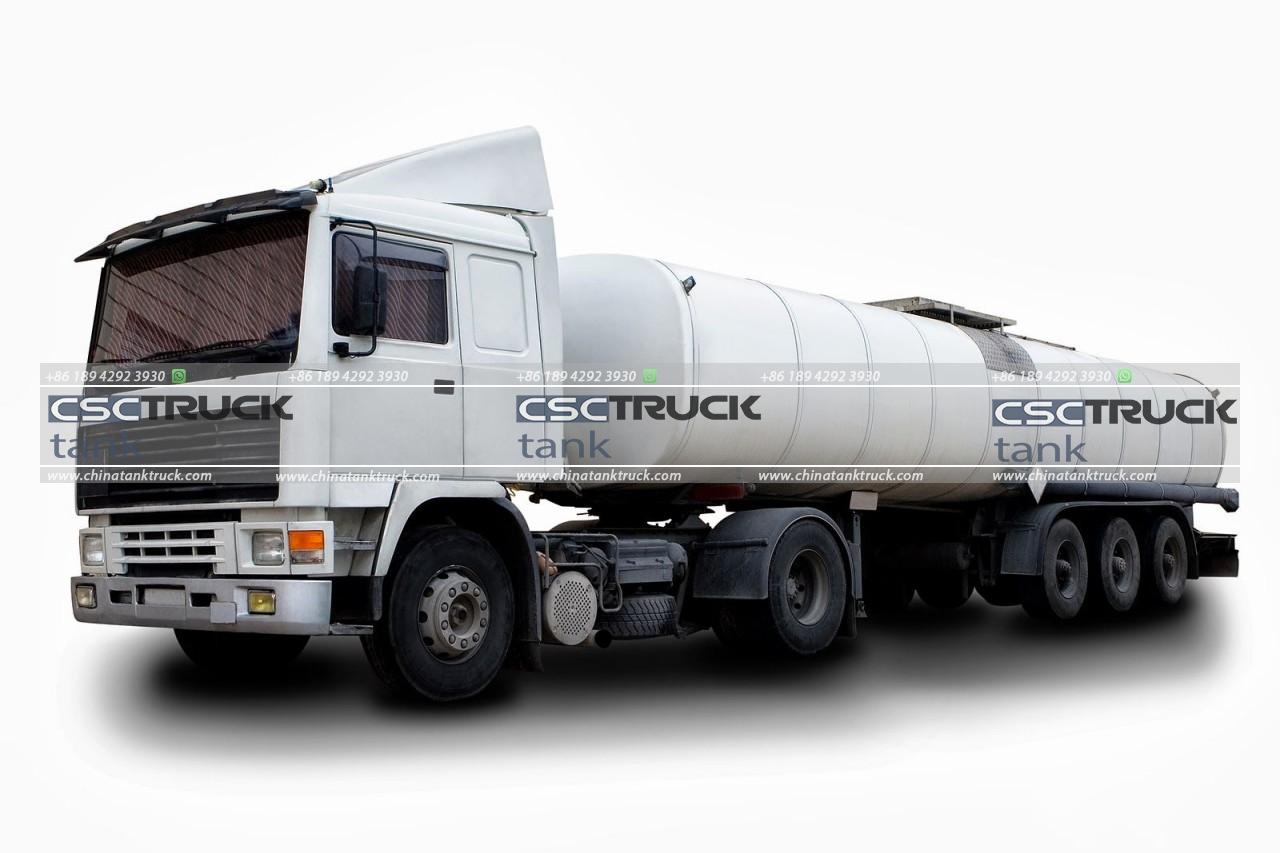
In some cases, the specific requirements of certain applications may necessitate the use of alternative materials. For example, for highly corrosive substances, specialized alloys or materials like stainless steel or fiberglass may be more suitable. Each material has its own set of advantages and limitations, and the choice depends on the specific needs of the industry or application.
In conclusion, carbon steel tank trucks are widely used and preferred in the transportation industry due to their strength, durability, corrosion resistance, versatility, and cost-effectiveness. They provide a reliable and efficient means of transporting various substances, including hazardous materials, petroleum products, chemicals, and food-grade liquids. With proper maintenance and coating systems, carbon steel tanks can offer long service life and ensure the safety of both the cargo and the environment. However, it is crucial to consider the specific requirements of each application and assess whether alternative materials may be more suitable in certain cases. Ultimately, the selection of tank material should be based on a comprehensive evaluation of factors such as the nature of the cargo, transportation conditions, industry regulations, and budgetary considerations.
